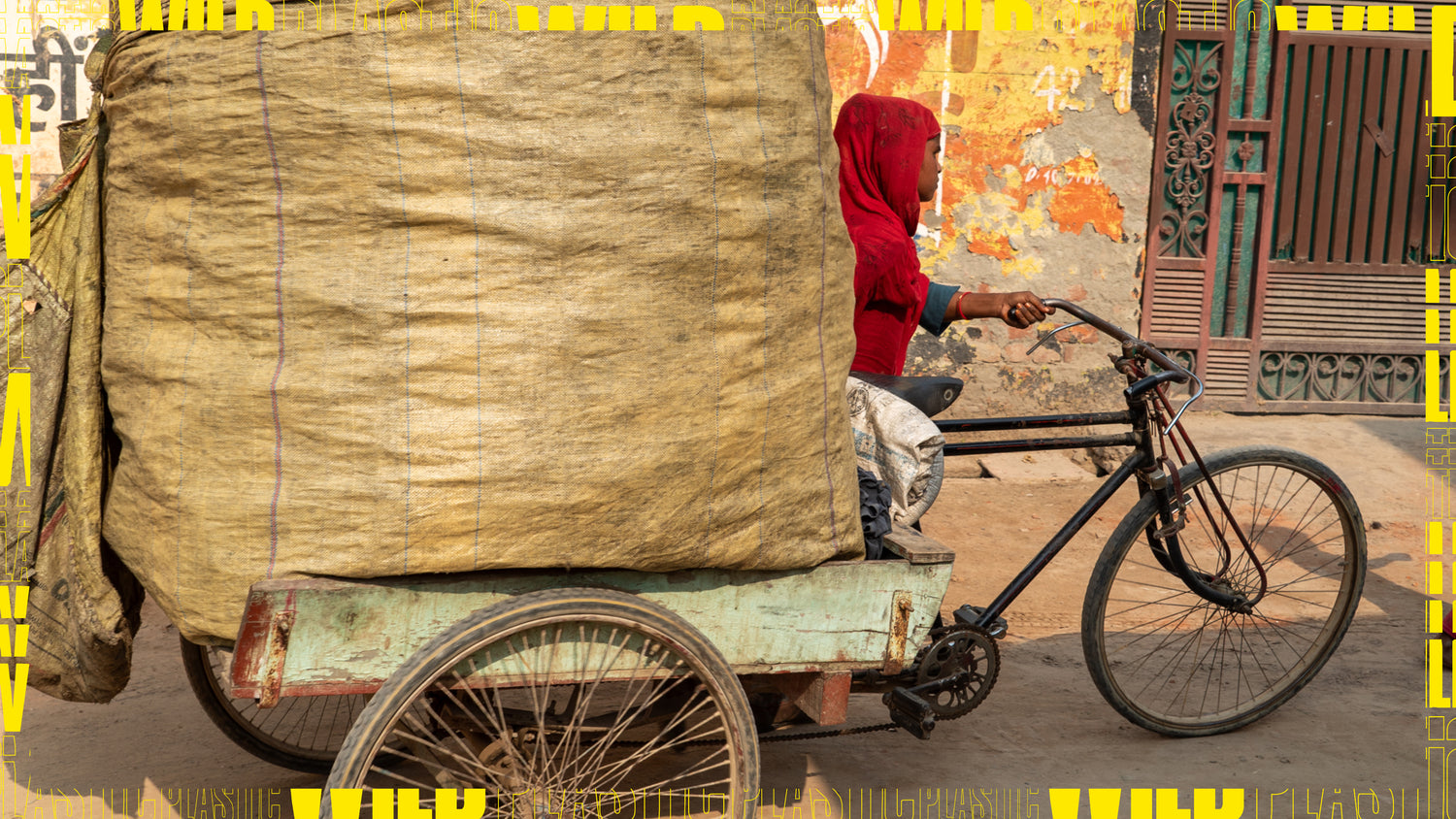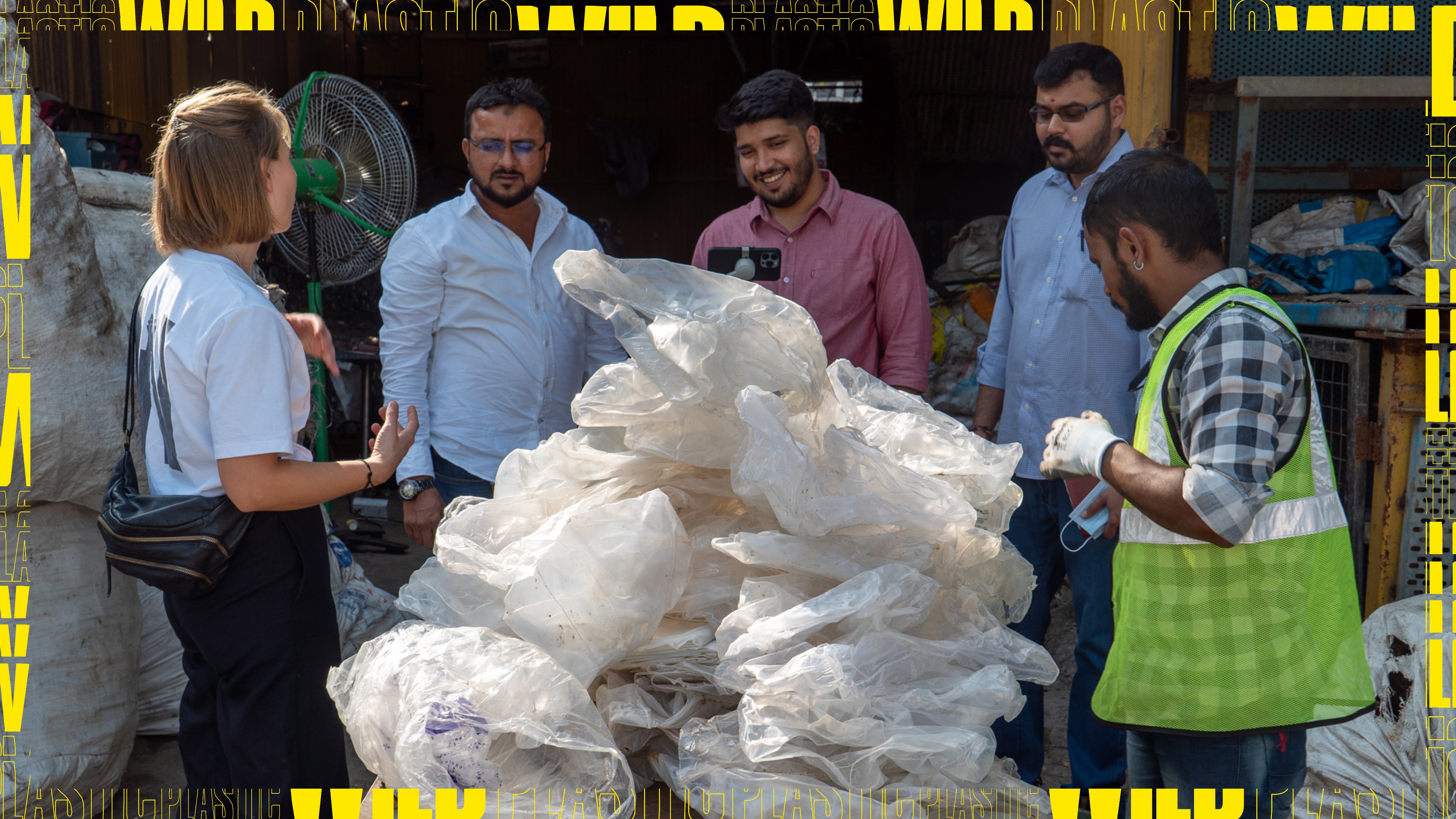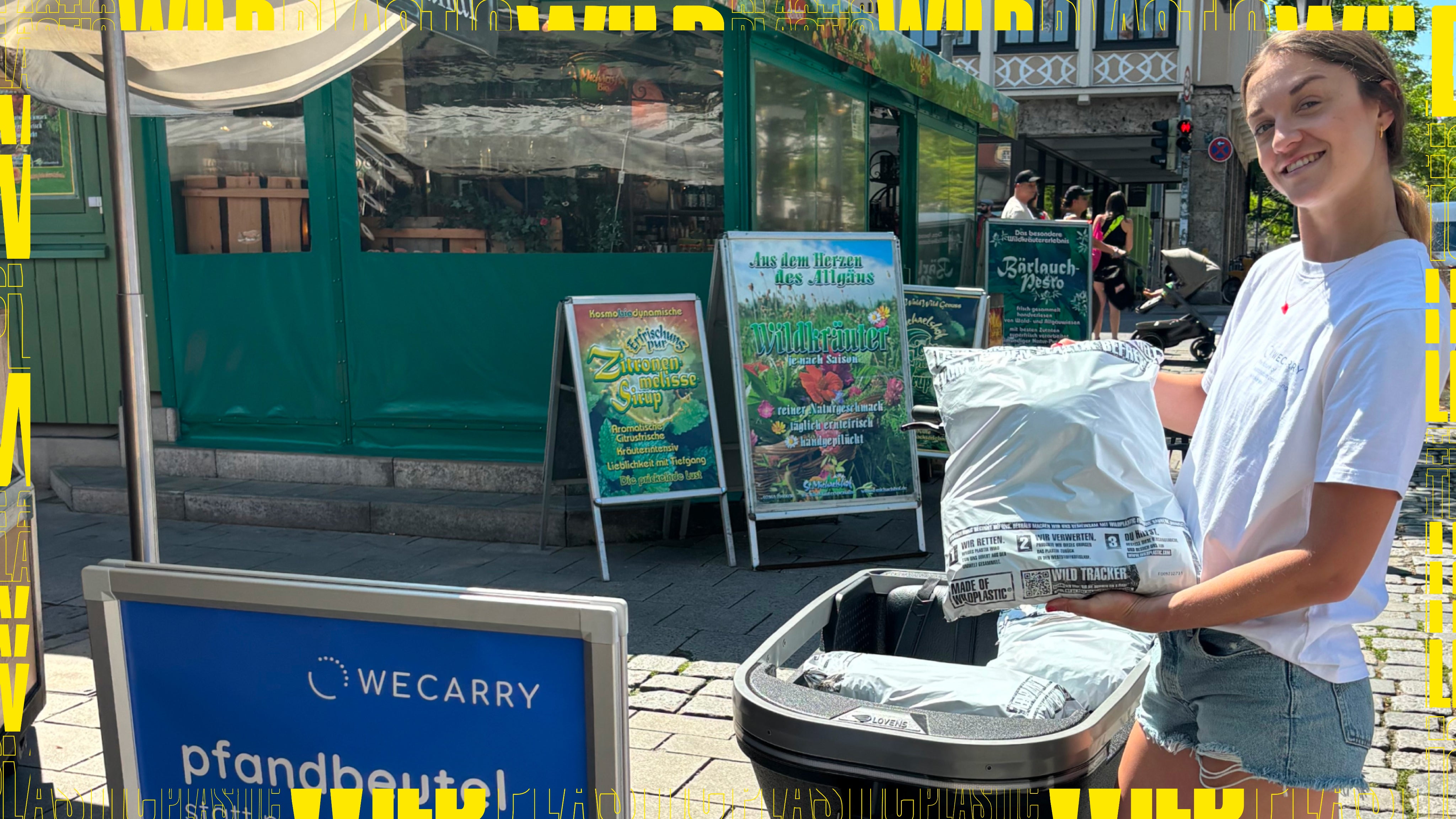During their last trip to India in October 2023, our colleagues Maiju and Ronja visited Conserve India, an NGO from Delhi, to gain a deeper understanding of the grassroots of the waste management sector in India. We had many questions that we were able to talk about with Kanika Ahuja, Director at Conserve India. Kanika took us on a journey through 20 years of working in the waste management sector and shared a favorite memory from working with the people in the sector with us.
So, can you first tell a bit about yourself and about Conserve India in general, how everything started and where are you now?
I'm Kanika Ahuja, I've been a director at Conserve for the last seven years. Conserve India is an old organization. It started about 25 years ago and since then we've been working in different fields of environmental sustainability, energy efficiency, waste management and recycling, eventually getting into the circular economy. Doing this we've developed proprietary technologies for plastics and textile waste to create high-value products working with the grassroots and we work with our target groups of waste workers, artisans and refugees and we've been deploying the technologies we created on the ground so that we can create an inclusive workforce that works towards sustainable livelihoods while cleaning up the ecosystem of plastic and textile waste.

How did you come to Conserve India yourself?
Actually Conserve India was founded by my parents and Anita Ahuja is still the president of the non-profit and she's very active. Both my parents were the key people involved in developing the technology specifically for plastic waste and that is something that is still gaining fraction at the grass root level and we're currently disseminating that knowledge and that technology with skill development training and processes at different decentralized locations to use these technologies in different areas.
Maybe you can tell a bit about those projects now, where you have projects and initiatives and what are you doing in different parts of the country?
Currently we work both with plastic and textile waste. We have small plastic recycling units, we call them micro enterprises, where we've empowered a group of 20 to 30 individuals in collecting, segregating, processing waste and then developing end products like fashion accessories and home accessories. So one of our projects is in Delhi, in Ghaziabad and one in Kashmir. Other than that, we also do work a lot with artisan groups across North India. Basically, every geographical location where there is unskilled labor and the problem of waste is a target location for us to work with and understand the kind of waste that is available there and customize solutions on what value can be derived from that waste to make it an economically efficient solution.
What are the biggest struggles when working on a project or starting a project in the sector?
I think laying the groundwork, the partnerships we need because working with waste, even after all these years, 20 years we've been working in waste, but it remains quite an infrastructural challenge as well as an ecosystem challenge, aligning all the stakeholders. We need various stakeholders from the municipality to come on board, to a local implementation partner, to the community we're working with, and then of course making it a sustainable business. So it's a complete ecosystem that is required to make such a project sustainable. Laying the groundwork for those partnerships, especially because, for example, our target community, the waste workers are usually classified as the unorganized sector or the informal sector. So how we can create a micro enterprise formalizing this workforce which still today remains a core value for us because building that inclusivity into the supply chain is extremely important for us.

Conserve India is very strong in the field of Female Empowerment, can you tell us a bit about how you implement that in your projects?
Women empowerment is also one of Conserve's core values and working with the waste workers, we also noticed historically how women have been in the back seat in waste management. One reason is that women who are working in waste, are mostly migratory communities. Our programs focus a lot on women empowerment to train them in whatever they're comfortable with. Because in most groups we work with, the women are not comfortable going out for collection, or they're not okay going to the market to buy raw material. So working within those constraints, like setting up the collection and segregation unit within the community itself, has been a core goal for us so that the women are able to reach that point where they can work independently. Doing this, we have seen a lot of change in the community, culturally, for example how women are treated, and it has given them some amount of confidence in also building their own livelihood. We have some women now who have volunteered themselves, and they want to learn further, they want to be upscaled into production, into sheet making, into product making. I think it is the biggest win for the project.
Is there any favorite story that comes to your mind from the past years of working in waste management and recycling?
There was a worker with us who was with us from the start of the project from 2002. His name is Shamim. He joined us as a waste worker. At that time, we used to work in Patparganj in Delhi. First he was a waste worker, involved with picking up waste, he must have been about 22 years at that time. Slowly, he co-developed this technology with us, helping us understand plastic waste, helping us identify which kind of plastic would be recyclable – the noisy ones are not that recyclable. Then he joined us in the capacity of a recycler. He was the one who used to make the fabrics, and then he slowly also started making products.
One loss which in the end became a big personal win for him and also for us was, that he shipped a shipment of products to Germany that were not stitched correctly, but then it was too expensive to bring the shipment back. So Shamim went all the way to Germany and they provided him with a tailoring machine over there and he fixed all the products himself. Business wise this was of course not great, but for Shamim it was a big emotional thing because he was the first person from his entire village to actually go outside India and he got a big fur coat for himself for cold Germany. I think this story just spread a lot of warmth for all of us.
Can you see a difference from when Conserve India started its work until today? Has the waste sector improved or not?
I think it's a very double-edged sword, the waste sector. There have been a lot of improvements in some spaces, but it's pretty much the same also in some areas and while the condition of the informal workers for example it remains the same and while the waste sector has been developing more infrastructure, more privatization is happening but that it has negatively impacted the informal workforce that has been doing this work for over decades and generations. So going forward, it's necessary that these two worlds of the privatization of companies, building infrastructure, of municipalities playing a more active role in developing key infrastructure needs for circular companies to come forward. It's essential that we integrate the informal workforce with this so that they're not just left behind.

Could you in the end tell us your opinion on the Indian waste management ecosystem and the gaps that are still there?
I think on the consumer side, we need a lot more awareness on plastic pollution. I mean, there is a lot of awareness that plastic is a problem, but what as citizens can be done. So even if there are online campaigns or educational campaigns that WILDPLASTIC® does, we would be happy to share them digitally or hold awareness sessions with schools, colleges, and because there is a lot of interest in the youth on what kind of business models can come out or what kind of green entrepreneurship models can come out of waste.
And if we could also use this as a case study on how WILDPLASTIC® and partners in India are collaborating to create a successful, you know, intercontinental model, I think it is a very inspiring story to give out. Because at the moment there's plastic, there's waste, everybody knows about it, but there's no positive solution that is being circulated and that's why these kinds of case studies, these kinds of ideas are very important to spread. Especially amongst the youth and of course on the policy front as well we discussed how this business model works and how policies from Germany have also inspired you to create this exchange between developing countries and Germany.
We can also recommend these policies to the Indian government on how trading between nations on waste can be improved. If there is a subsidy we can access, if there are lower customs rates that can be given. Because these kinds of collaborations and business models are really what need economic benefits. Economic benefits that can really make it successful for India and Germany to make this a more economically viable model. So both on the supply side and the demand side, we need these benefits to be accrued so that we can reach scale because only with scale will we be able to reach that kind of impact that we both want to make.
Thank you so much for your time, Kanika!
Interview by Maiju Laamanen and Ronja Lamberty




Hinterlasse einen Kommentar
Diese Website ist durch hCaptcha geschützt und es gelten die allgemeinen Geschäftsbedingungen und Datenschutzbestimmungen von hCaptcha.